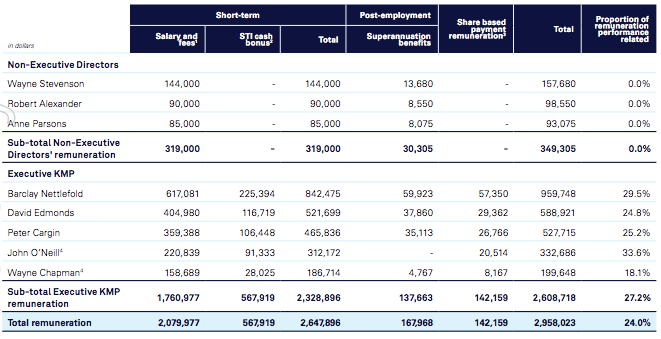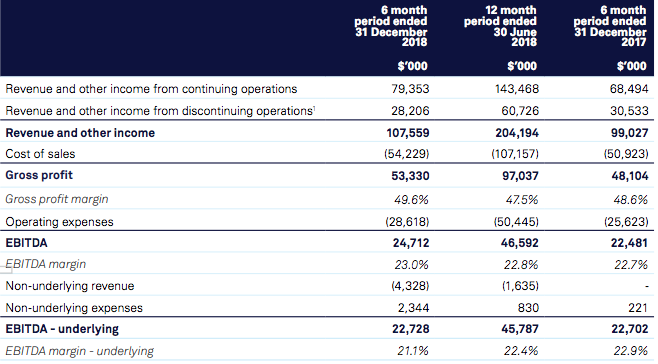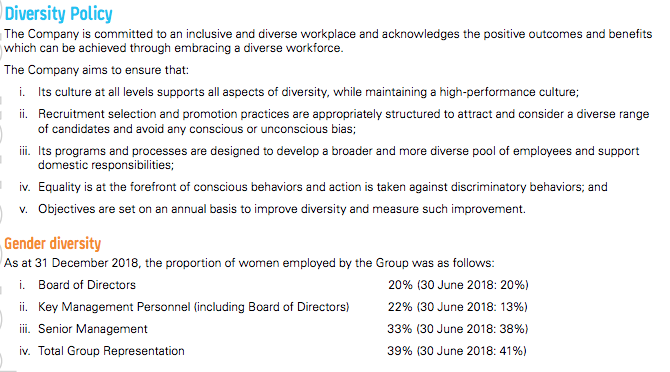
QMS annual report promises more transparency, reveals Barclay Nettlefold paid $959,748
Out-of-home company QMS has released its annual report, which reveals group chief executive officer Barclay Nettlefold was the most well-paid QMS executive, taking home $959,748 – $617,081 of which was his base salary and $283,125 of which was performance related.
Chairperson of the business, Wayne Stevenson, also promised shareholders greater transparency in regards to QMS’ operational and financial performance.

The report flagged numerous risks for the company, which would be standard for out-of-home operators (including the reliance on media agency relationships, and the potential deterioration of these, and the dangers of operating in different economic, regulatory and political environments) – but also noted the changing local market and its implications for smaller players.
“There has been consolidation in the Australian market, which will increase competition in the out-of-home advertising market and could lead to yield compression,” the report said.
Stevenson, however, also noted the proposed merger with MediaWorks – a New Zealand-based TV and radio business – would position the company as “an unrivalled destination for brands in the New Zealand market”.
The proposed merger would also help pay down the company’s debt, the report noted.
On 29 October last year, QMS’s facility agreement with National Australia Bank (NAB), was increased by $20m to fund its digital rollout and the acquisition of TGI and TGIE. QMS now has $113.4m available in facilities, which includes a $6m bank guarantee facility.
In December, the maturity date of this facility was pushed from 30 September 2019 to 31 March 2020.
At the conclusion of 2018, the business had $20.9m in cash and equivalents. The report said it expects to have sufficient funds to support its current activities.
“On completion of the proposed merger of QMS NZ and MediaWorks, a loan repayment of approximately $35m, subject to final financing arrangements, is expected to be received, which will reduce the net debt level. In addition, initiatives have been identified to reduce net debt, which include the sale of non-core land and buildings,” the report said.
In other remuneration revelations, David Edmonds, director corporate and legal, earned $588,921, 24.8% of which was performance related.

Remuneration details of both executive and non-executive directors (Click to enlarge)
QMS Australia made up $66.3m of the company’s total revenue, with digital media contributing 79% to Australian media revenue.
Nettlefold provided calendar year guidance of $60m to $62m in EBITDA.

Details for the six month period in question, as well as the year ending 30 June 2018 and the six month period ending 31 December 2017 (Click to enlarge)
During the six month period, QMS also:
- acquired 51% of Gomeeki, a mobile commerce company;
- completed its acquisition of Sportsmate, a sports media company delivering sport scores to fans;
- agreed to acquire 90% of TGI and TGI Europe, which deliver sports technology including LED signage and software management platforms. This acquisition was a significant reason for a loan with the National Australia Bank increasing by $20m;
- proposed a merger of its New Zealand business with MediaWorks, an independent radio, TV and digital company which would establish the largest multimedia advertising group in New Zealand. QMS will have a 40% stake in the business, but loss of control of QMS New Zealand.

The diversity policy in full
The company also noted it is committed to an inclusive and diverse workplace, but, notably, the report’s diversity policy failed to address any diversity data or goals beyond gender representation.
In the remuneration table above, eight people are listed as non-executive directors or executive key management personnel (KMP). That would bring the percentage of women to 16.67% of directors, 0% of those labelled specifically as KMP, and 12.5% of KMP when including directors. However, the report lists the board of directors as being comprised of 20% women and 22% of KMP (including directors).
In February (after the reporting period), the board brought on Ian Rowden as an independent, non-executive director, which would see the percentage of women in KMP positions, including those who are directors, drop to 1 in 9, or 11.1%.



The amount of Mumbrella space in this story devoted to diversity and gender equality is, nuts. If QMS adheres to this direction instead of picking the best, woe behold the shareholders , such as I, as the QMS relative performance declines as lower quality people are selected instead of best in class.
The journalist should write on something productive instead of chasing a reduction in productivity for Australia’s businesses
https://www.mckinsey.com/business-functions/organization/our-insights/why-diversity-matters
Looks like Mr Nettlefold is succeeding financially in the capitalistic environment that media, marketing and advertising is…